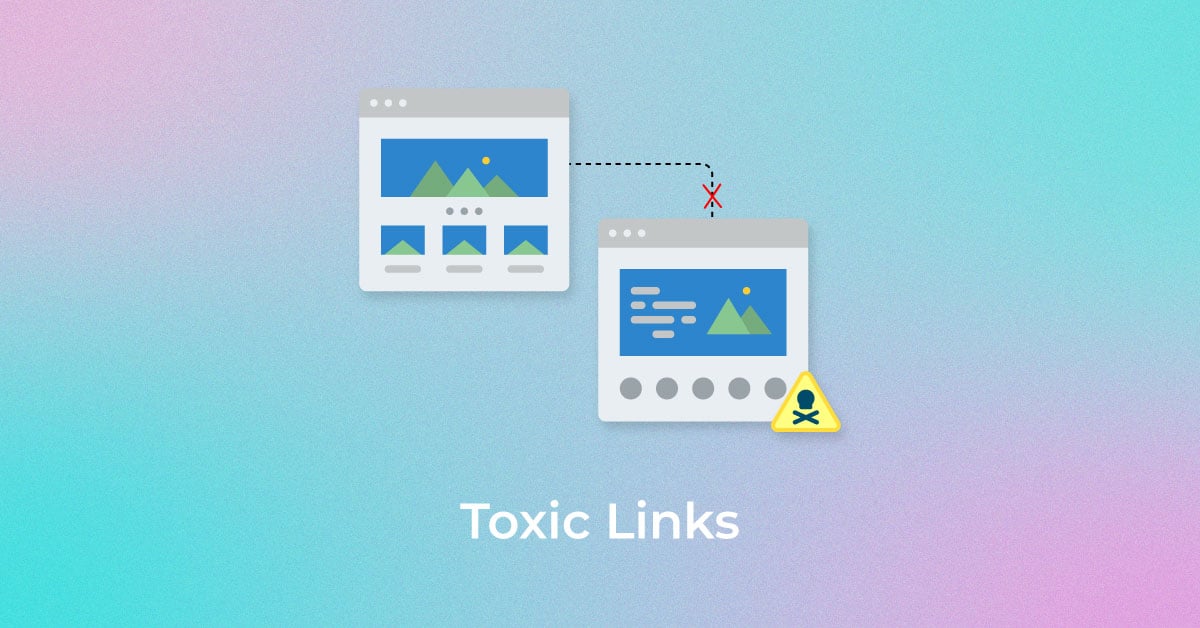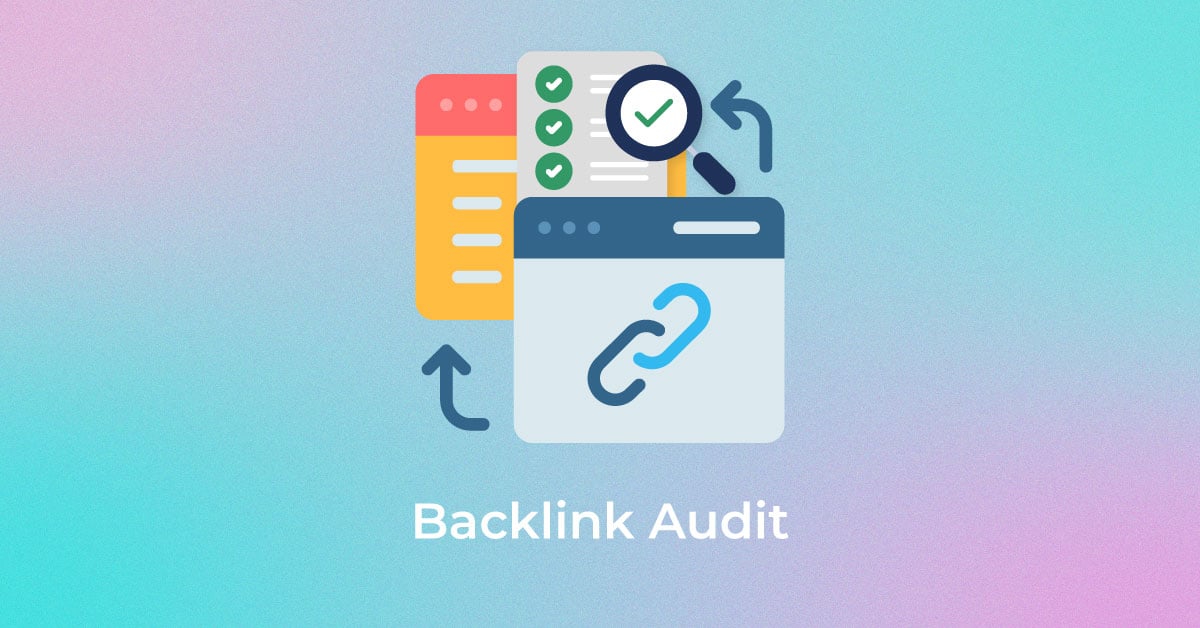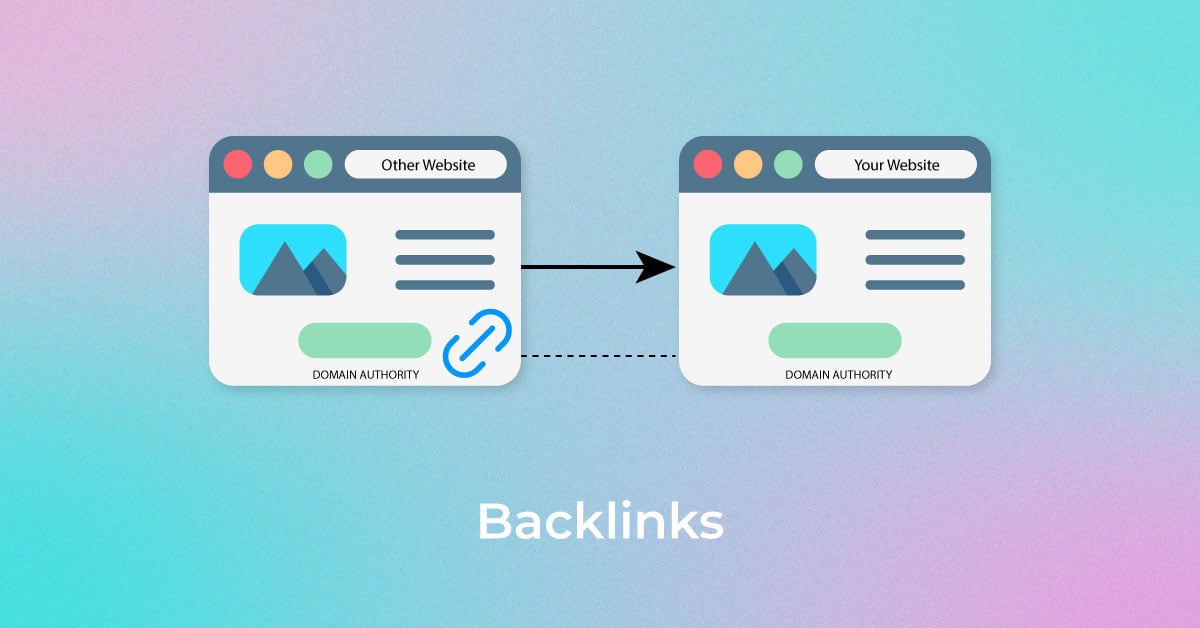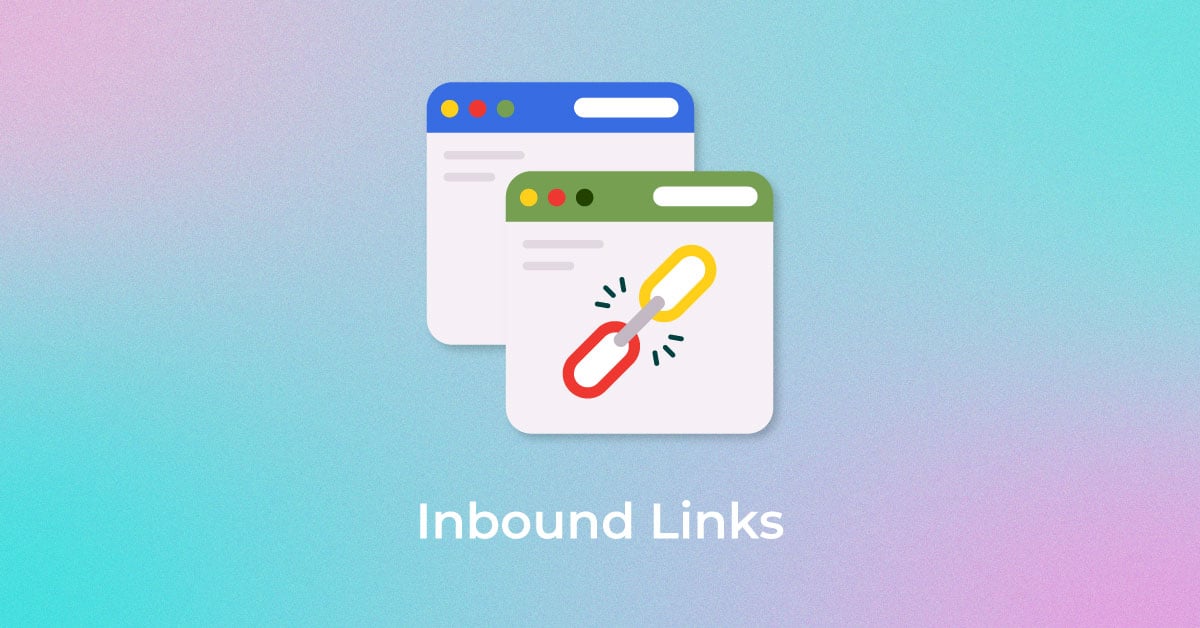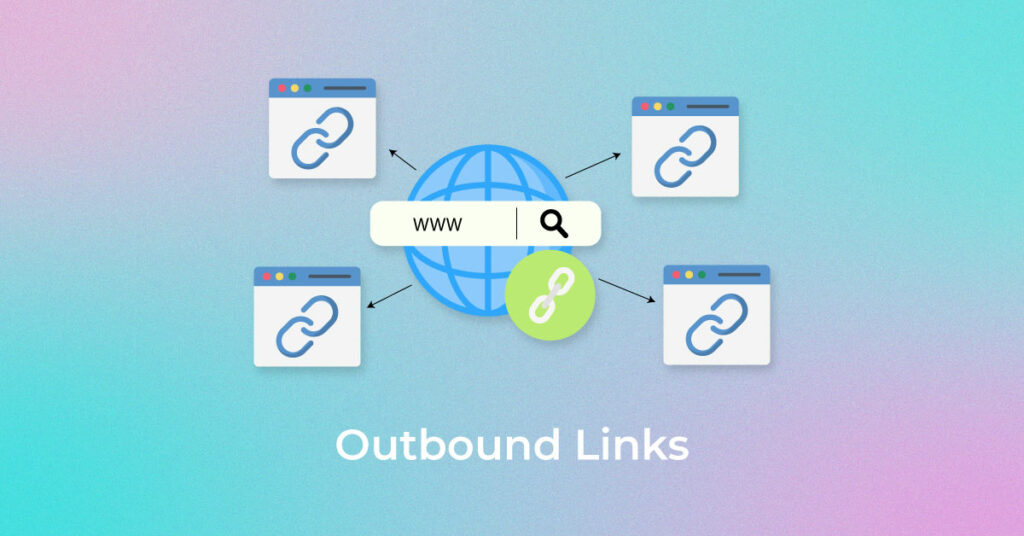Have you ever wanted other websites and Web pages to link to your website but hesitated to do the same at your turn?
What if we told you that linking to other websites on your Web content can actually propel your page to higher ranks on search engines? Especially if the content provides value to your target audience and fits in their context.
Links to external websites can improve search engine optimization (SEO), establish domain authority, and increase trust in your viewers. Such links are called outbound links. Read on to know why you should be paying more attention to outbound links and how they affect SEO.
What Is an Outbound Link?
Outbound links fall under the category of external links. External links are links that take users to any domain/link from the source domain/link. External links are of two types –inbound and outbound links. Inbound links are links that take users from other websites to your website. Outbound links are external links that take users to other websites from your website.
Both inbound and outbound links help improve domain authority, establish credibility, and increase the organic visibility of a website. Outbound links add more context to the content on a Web page and allow users to understand a topic in more depth. They direct readers to other sources that can provide additional information to supplement and support the subject discussed.
They are also referred to as authority links because your Web page links to other authoritative sources or websites. And linking to websites with established authority instantly increases the credibility of your website/content.
Why Use Outbound Links?
The effectiveness of outbound links is at the center of an ongoing debate. Although several myths float around about the effectiveness of outbound links in SEO, many SEO experts, Google employees, and even Google’s core search advocate John Mueller swear by the positive results of using outbound links in SEO.
The concept of using outbound links might not feel so alien if you relate it to real life. You might have learned about the importance of citing reliable references and sources in school or college. You can think about outbound links as providing a reference in the form of sources, statistics, quotes, and other in-depth explanations for your base content.
Here are some crucial reasons to use outbound links:
-
Outbound Links Boost SEO
Outbound links do not have a direct effect on SEO, but implementing the outbound follow links that add real value to your Web content and provide answers to the questions that your target audience is asking can actually boost your position on search engines.
Currently, the efficacy of external links as a ranking factor has been confirmed multiple times, and there is practical evidence to support it. In 2016, Google’s Andrey Lipattsev stated in an interview that apart from Web content, links are one of the highest three ranking factors on Google.
Moreover, John Mueller quoted that linking to other websites is a great way to provide value to your users. Often, links help users find out more, check out your sources and better understand how your content is relevant to questions they have.
Reboot Online, a digital marketing agency, conducted a research study that concluded that external links remain a ranking factor and an essential SEO best practice. But this is only true if the outbound external links are from domains with already established authority and sources that add context to your content.
It does not apply to unnatural and artificial outbound follow links. Those, in fact, are counterproductive. If search engines detect that the outbound links you add are manipulative, deceptive, forced, or completely out of context, it considers it a violation of its Webmaster Guidelines and hands out penalties. So, you can pretty much conclude that adding outbound links to authoritative sources can improve your SEO and boost your ranking.
-
Strengthen Topical Signals
Topical signals or authority is a website’s perceived authority and expertise in a particular subject, area, or niche. When search engines crawl pages, they check the relevance and expertise of the content to the topic to assess whether they can provide value to the appropriate target audience. Adding outbound links can strengthen topical authority or topical signals of your website, as they demonstrate to search engines that you have an in-depth understanding of the topic and are unafraid to lead the user to sources with a better grasp and knowledge of the topic.
-
Build Reader Trust in your Content.
Given the barrage of fake news and misinformation, it is only logical to take all the necessary steps to distinguish your website or brand as a reliable source of information. Adding outbound links can help give the correct context to your content and help users trust your website.
When people see that you don’t hesitate to direct them to an authoritative and trustworthy source that can help them understand a topic better, the chances of them automatically trusting your website are higher. Including outbound links in SEO does not only help users verify the information on your website, but it also helps search engines like Google or Bing understand your Web page better and improve the chances of it ranking higher.
This helps search engines identify your website as one that publishes content that’s valuable and relevant to the search query. Therefore, it is more likely to consider them for inclusion in the top search results.
-
Demonstrate Expertise
According to Google Webmaster Tools, outbound links help establish the EAT factor of a Web page. EAT is an acronym for the expertise, authority, and trustworthiness of a Web page. And while there are many ways to improve a website’s EAT quotient, adding outbound links is also a viable one.
When you link to sources that provide more in-depth and accurate information to explain a complex subject, you, by default, establish that you can distinguish authoritative sources from inaccurate, artificial, or manipulative ones. This, in turn, helps boost your expertise and knowledge in the subject too, because someone with a superficial understanding of the subject would not be able to identify the correct sources and link to unnatural outbound links.
As the Google Webmaster’s blog summed it up—does the content present information in a way that makes you want to trust it? Are the sources reliable? Is there evidence that the author is an expert? Is there enough background information of the site that published the content either through links to an author page or a site’s About page?
Best Practices for Outbound Links
-
To provide easy access to information
When you add outbound links to your Web page or Webcontent, ensure that you provide users with easy access to information. This means that you should pay careful attention to the type of pages you are selecting for adding outbound links.
The Web page should be one that addresses and simplifies the topic discussed in an easy-to-follow manner.
Avoid adding outbound links to a page that has further outbound links. Readers who click on your outbound links click it with the hope of getting their questions answered at the source recommended by you.
-
Linking to high domain authority websites
When adding outbound links to your website or Web content, link to domains with a high or established authority. High domain authority websites rank higher for a reason. It is because search engines have already deemed them credible and authoritative enough to rank them in top positions.
Do not add outbound follow links in your SEO campaign for the sake of it, or for manipulating search engine algorithms. The outbound links you add should be contextual to the topic and flow with the rest of the Webcontent. If you force unrelated or unnatural outbound links into your content, it will backfire.
-
Avoid linking to pages that provide a poor user experience
According to Hubspot, more than 60% of users organically visit websites through a mobile device. That is why having a website with a responsive and user-friendly design is essential. In 2016, research by Google found that 53% of mobile website visitors leave a Web page if it doesn’t load within three seconds. Apart from ensuring that your Web page is mobile-friendly, user-responsive, and lag-free, make sure the websites you are choosing to add outbound links to have a lag-free and quick page load time, user-friendly site navigation, and other tools that help your target audience get the answers they are looking for as quickly as possible.
-
Link to competitor websites for the best content
In the pursuit of uniqueness and outshining your competitors, do not refrain from providing your users with the ultimate value from your content. Linking and citing sources is one of the oldest and most reliable literary practices. If the great authors of the world did it, why not you?
-
Use clear and attractive Anchor Text
Anchor text is the visible text on a hyperlink that leads you to another link. When adding outbound external links to your Web content, use anchor text that compels users to click on the link and convinces search engines your content provides value. Refrain using vague and abstract anchor text words and phrases.
-
Number of Outbound Links to include
There is no magic number of outbound links that will work best for everyone. The standard rule is to at least add 1 to 3 outbound links in SEO to your Web content but in a way that is not forced or unnatural.
Any links in or to your Webcontent, including outbound or external links should not merely appear natural but should actually be natural. And you will not have to worry about how natural and flowy a link is if you write original and authentic content and note all the sources you use while researching the information revolving around your topic of concern. If you do organic research, you will come across natural links.
Let us say search engines like Google detect that you are stuffing irrelevant and unnatural outbound links to your Webor blog content. They then hand out a manual action penalty and consider it a violation of Google’s Webmaster Guidelines.
-
Outbound links to be open in the same window
Outbound links aim to cite your sources, allow your readers to navigate to a website that you consider reliable, and learn more about a topic. While we have established that you should consider the websites you link to with care and choose trustworthy sources, you should also try to make sure your outbound links open in the same window.
Getting directed to a new window to read further on a topic can affect user experience. Switching between one window and the other can also slow things down. In fact, you should ensure your outbound links open in a new tab or the same tab. Many users prefer visiting another website link in a new tab so they can switch between the two tabs with ease. SEO experts also suggest that external links should be in a new tab while internal links can lead to the same tab or a new one.
-
Use rel=nofollow wherever necessary
The rel=nofollow attribute provides context about the linking page to the link target. Using the rel=nofollow link signals to search engines that they should not pass any link authority to the external link. You can use this attribute when the outbound links in your content are not placed organically and are due to sponsorships, advertisements, or user-generated content in public comments and forums.
When should you avoid outbound links?
Too much of anything can hardly lead to anything good. The same goes with outbound linking and external links. While 1-3 outbound links in SEO is the standard, and some level of natural linking is advisable, you should avoid adding too many unnecessary outbound links. Offering too many additional points of view and resources can annoy and confuse readers. It can also turn counterproductive and lead search engines to conclude that a website has excess and unnecessary outbound links. In fact, in 2016, Google started handing penalties by issuing a manual spam action to websites that contained unnatural or irrelevant outbound links. Google believes that unnatural links are your attempt to boost other websites’ rankings artificially.
Conclusion
Adding outbound links to your Webcontent has more pros than cons, provided you add actual value to the Wweb. If done correctly, outbound external links can boost your ranking and online presence, get you a target audience that trusts you, and ultimately increase your reach and revenue.
Popular Searches
How useful was this post?
2.5 / 5. 2










